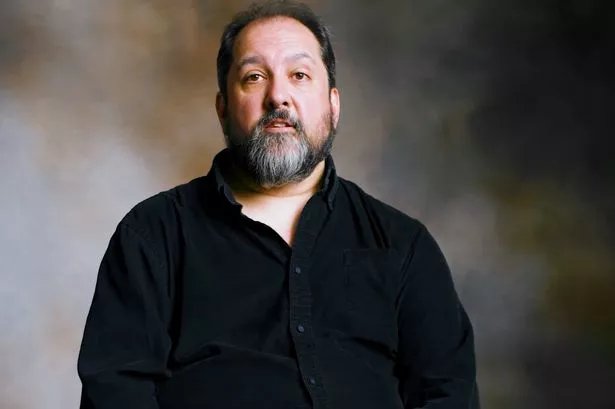Disturbing Confession: Jay Katz Reflects on the Murders of His Parents
In a chilling revelation, Jay Katz, who infamously shot his father and stepmother in 1991, has opened up about the events leading to the tragic incident. Speaking on the YouTube channel “Soft White Underbelly,” Katz, now a mental health advocate, recounted the harrowing details of that fateful day in Burtonsville, Maryland, where he committed a crime that would haunt him and his family forever.
A Gruesome Crime
On a seemingly ordinary day in August 1991, 20-year-old Jayant Narayan Katz found himself in a dark place. Struggling with severe mental health issues, including manic depression, he was contemplating suicide when his father, Norman Katz, a former U.S. Army doctor, invited him to watch a movie. The film, “New Jack City,” a crime thriller featuring themes of vigilante justice, would later be cited by Katz as a source of inspiration for his actions.
In a disturbing confession, Katz described the moment he took his stepmother’s .38 caliber revolver from her bedroom. He recalled standing in the kitchen, gun in hand, as his stepmother, Michelle R. Filling-Katz, cooked dinner, unaware of the impending horror. Katz’s first shot struck her hand as she raised it in defense, followed by a fatal shot to her face. He then pursued his father upstairs, fatally shooting him in the back. “I just watched them both bleed out,” he chillingly recounted.
The Aftermath
The aftermath of the murders was devastating. Katz’s younger brother, Sanjeev, returned home to discover the bloodbath and immediately suspected Jay. He called 911, informing the police of his brother’s previous threats to kill their parents. Friends of the victims later revealed that Norman and Michelle had expressed concerns about Jay’s mental health, although they did not perceive it as particularly extreme at the time.
Katz was arrested and subsequently pleaded guilty to two counts of second-degree murder and two handgun offenses. He was offered a plea deal that resulted in a 100-year sentence, a decision he described as one of the hardest of his life. “Pulling the trigger was horrible… but agreeing to a hundred years, I just thought man I’m cooked,” he said, reflecting on the weight of his actions.
A Long Road to Redemption
After serving 23 years in prison, Katz was released in March 2022. Since then, he has sought to transform his life, becoming a mental health advocate. In his recent interview, he discussed the importance of addressing mental health issues, particularly among young people. “I want to help others who are struggling,” he stated, emphasizing the need for open conversations about mental health.
Katz’s story is a stark reminder of the complexities surrounding mental illness and the potential consequences of untreated conditions. His case raises questions about the support systems available for individuals grappling with severe mental health challenges.
Cultural Reflections
The influence of media on violent behavior has long been a topic of debate. Katz’s reference to “New Jack City” highlights the potential impact of films that glorify violence and vigilante justice. While it is essential to recognize that not everyone exposed to such media will resort to violence, Katz’s case serves as a cautionary tale about the intersection of mental health and media consumption.
Historically, the portrayal of mental illness in media has often been stigmatized, leading to misconceptions and fear. Katz’s candid discussion about his struggles aims to challenge these stereotypes and promote understanding. By sharing his story, he hopes to encourage others to seek help and foster a more compassionate dialogue around mental health.
Conclusion
Jay Katz’s journey from a troubled youth to a mental health advocate underscores the importance of addressing mental health issues in society. His tragic story serves as a reminder of the potential consequences of untreated mental illness and the need for open conversations about mental health. As Katz continues to share his experiences, he aims to inspire others to seek help and break the stigma surrounding mental health challenges.











